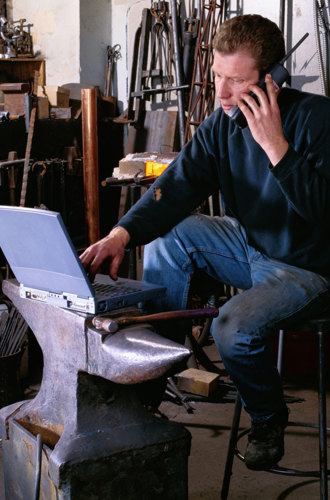All economies, including Alberta’s, grow in cycles. The demand for labour is always changing. Discover how to keep your career on track through hot and cold economies.
You can keep your career on track through economic cycles. The key is to take positive action in the areas of your work and life that you can control.
Try these suggestions.
Increase your value as an employee
Employers value the employees they think they can’t do without. These are the team players. They are on-time, reliable, positive, willing and flexible. You can increase your value when you do your best work and bring your best attitude every day.
Employers see employees who save money or time or who increase revenue as more valuable. Think about how you can add value:
- What insight or knowledge can you bring to your job to improve customer service or sales?
- What challenge can you take on to demonstrate your skills?
- What new information or fresh idea can you suggest to save money, earn new revenue or create new opportunities?
- What new role can you play that helps your employer and lets you develop new skills?
Make sure your employer understands how you add value. Keep a record of what you accomplish. During a performance review or job interview, you will be able to show your value. If you ever need a reference, your employer will be more likely to give it.
Review your career plan often
Career planning doesn’t stop when you choose an occupation or find a job. It’s an ongoing process that helps you achieve what you want from your work and life. Review your career plan. It will help you stay motivated, keep learning and remain engaged. These are qualities that employers value, no matter the economic outlook.
When you review your career plan regularly, you’re better prepared for changes in the economy:
- You are ready to take advantage of new opportunities.
- You can decide whether to look for a better job.
- You can identify ways to keep your job if the economy cools.
- You understand whether your current job reflects your skills, values, interests, personal and work goals and stage of life.
- You can decide which aspects of your career you’d like to change.
- You can update your career plan with measurable goals.
- You are aware of how the economy might affect your current and future goals.
Assess your skills
Take stock of your skills. Think about how you might apply your skills in new ways that add value to your employer or help you reach your career goals.
Identify your skills in 3 key areas:
- Transferable skills. Your transferable skills increase your value in any economy. They include speaking and writing, problem-solving, project management, time management and many others. Check out Know Your Core Skills and How to Sell Them to find out more about your transferable skills.
- Computer skills. Most jobs require some computer skills, from using email and word processing to working with spreadsheets and using the Internet. To improve your computer skills, check out courses at your local library or community college.
- Work-specific skills. These skills are needed to work in a particular job. Keep your work-specific skills up to date. Your accomplishments and skills can help you identify and keep track of your work-specific skills. When you keep your skills current and develop new ones, you’re always ready to take advantage of new opportunities.
Take charge of your learning
In a hot economy your employer may have no time for training. In a cold economy, your employers may have no training funds. Take charge of your learning to be ready for hot or cold economies:
- Check out online courses and night and weekend classes.
- Look into seminars and conferences offered by industry groups, professional associations or unions.
- Find a mentor.
- Keep learning on your own. Read blogs and articles.
- Take on projects in areas outside your normal skill set.
Maintain your network
Your network is made up of the people you know and the people they know. Stay in touch with your network, no matter the economic situation. In a hot economy, your network will support you with mentoring, learning and coaching opportunities. In a cold economy, your network can connect you to the hidden job market, meaning the 70% of jobs that are not advertised.
The best time to build your network is when you have a job. When you need to look for work, your network will already be in place. Take time to build relationships with people at work. They can help you learn about how changes in the economy may affect your job and your employer.
Develop a Plan B
Even in a strong economy, you may need to look for work or alter your career direction. Your Plan B is a back-up plan. It is based on a realistic view of your current situation. It will help you keep your career on course during times of change.
You can develop a Plan B:
- Keep track of the labour market and economic trends. It can help you know when to activate your back-up plan.
- Create a basic budget. Identify strategies to help you to stick to it.
- Check out potential job leads.
- Update your resumé regularly. Have a digital version on hand.
Make sure your work search skills are up to date. Learn how to search and apply for work online. Learn how to tailor your resumé to show how your skills and accomplishments fit the requirements of each job you apply for.
Keep your career on track through good and bad economic times
You can’t control economic cycles, but you can control how you plan for and respond to them. Increase your value as an employee. Review your career plan regularly. Know your skills. Keep learning and networking. And have a Plan B just in case. Then you’re ready to make the most of a hot or cold economy.





